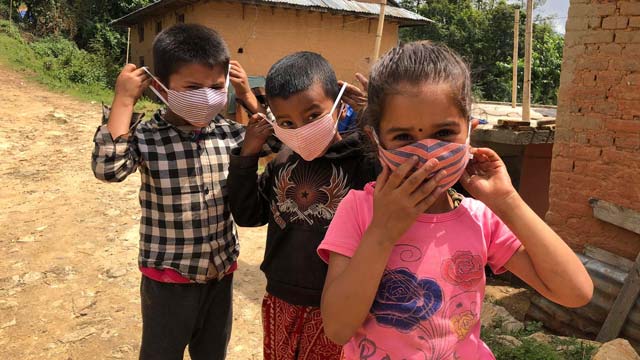Nepal is one of the poorest countries in the world, with the average Nepalese citizen living on less than $1.00 per day. According to the Borgen Project, natural disasters (such as the 2015 Gorkha earthquake), high cost of food, a corrupt government, lack of agricultural infrastructure and more all contribute to Nepal’s economic instability.
The COVID-19 pandemic has further exacerbated these issues in Nepal. The World Bank reports the pandemic, “… will profoundly transform Nepal and the rest of South Asia for years to come and leave lasting scars in its economies.” Travel restrictions hit many regions hard, as international tourism is a primary source of income.
Moreover, the pandemic increased malnutrition in the country. We quickly responded to the reverberating impacts of COVID-19 in Nepal with our Emergency Pandemic Response Plan, distributing household essentials to hundreds of rural families as well as masks and education.
With much of the world reeling from the pandemic’s tragic consequences, every dollar counts in the country’s recovery. Non-profits and generous philanthropists can make an enormous difference. The Nepalese rupee is equal to about $0.009…$100 goes a long way.
The Impact of $100
- Feeds one person for three months. With malnutrition on the rise in Nepal, getting people food is a top priority. The average Nepalese person spends around $1 per day on food. $100 could offer a steady source of nutrition and stability.
- Gives 10 workers a living wage for a day. A really good wage for an average worker in Nepal is $10 per day. With $100, you can employ 10 people seeking work. With Elevate Nepal’s projects, we ensure workers are paid a living wage, gain transferable skills and have a sense of ownership over the projects.
- Purchases 100 face masks. Distributing face masks is a pivotal aspect of our Emergency Pandemic Response Plan in Nepal. They’re one of the most effective and affordable ways to reduce the transmission of COVID-19 — key to lowering the rates of illness and hospitalizations in the country.
- Provides six months of tuition at the Ananda Jyoti Agriculture School. This school in Begnas Tal (a fishing and agricultural community near Pokhara) teaches students organic and sustainable growing practices, giving them transferable skills and a reliable source of income.
- Buys 1,000 coffee saplings, yielding 2,750lbs of coffee. We work closely with coffee farmers in Nepal to grow world-class coffee that can be sold in-country or be exported. This provides a steady income stream and prevents outmigration. 100% of the proceeds go toward our humanitarian efforts.
At Elevate Nepal, we strive to use each donated dollar to its greatest benefit. We strategically allocate funds to have the most sustainable impact for Nepalese communities, such as training the next generation of Nepalese agriculturalists, rebuilding a primary school or supporting international health organizations. We deeply appreciate your support.


